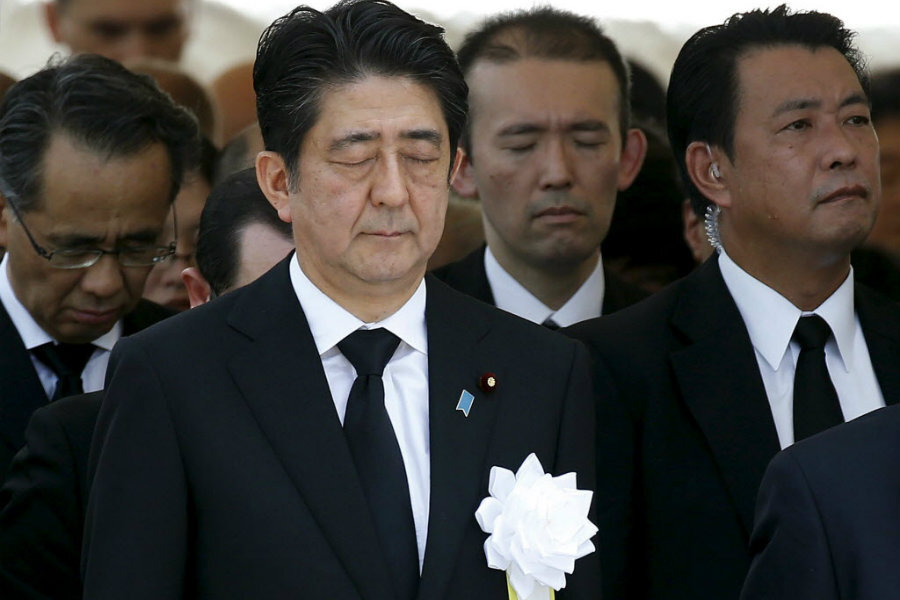Nagasaki 70th anniversary: How Japan’s past informs its future
Loading...
As Japan commemorated a pivotal moment of its past on Sunday, one man took the opportunity to speak out about the country’s future.
A survivor of the atomic bombing of Nagasaki on Aug. 9, 1945 used the event’s 70th anniversary to criticize Prime Minister Shinzo Abe’s recent efforts to expand Japan’s military and shift away from the nation’s postwar pacifist Constitution. During his speech at the memorial, Sumiteru Taniguchi said that the security legislation Mr. Abe’s government introduced last month goes against the wishes of Nagasaki’s survivors, and “will lead to war,” The Telegraph reported.
“We cannot accept this,” Mr. Taniguchi said. “The security bills which the government is trying to push through would jeopardize our long-time movement for nuclear abolition…. I cannot tolerate the bills.”
Since World War II, Japan’s Constitution has prevented its military from playing a combat role outside the country. But to the growing alarm of pacifists like Taniguchi, the government has in the last few months revived the prime minister’s campaign for a more active global security policy in an approach it has dubbed as a “proactive peace orientation,” The Christian Science Monitor reported.
What that means, according to a senior government official, is that “we will continue to commit to the peaceful orientation enshrined in the Constitution and we will never sway from that basic principle. But we will legislate to increase deterrence to meet new challenges.”
Abe’s supporters say his renewed drive “to loosen its shackles on the military is simply a long-overdue bid to defend his country in an increasingly threatening world,” in particular rising tensions in East and Southeast Asia, according to the Monitor.
In July, a bill that would allow Japanese troops to fight in foreign conflicts wherever Japan’s national interest is affected won approval from the parliament’s lower house.
“The security environment surrounding Japan continues to get tougher,” Mr. Abe told reporters after the vote, The Wall Street Journal reported. “These are absolutely necessary bills in order to protect the lives of Japanese people and prevent wars.”
Protests that took place during the vote – the largest demonstrations since the Fukushima nuclear disaster in 2011 – suggest that the public feels otherwise. As Bloomberg put it, “Major protests in Japan are unusual, and the level of discord reflects deep concern about Abe’s changes.”
“Abe is trying to change things too fast, too drastically,” one Japanese citizen told the Monitor in February. “And if he changed the Constitution, there would be no end to military expansion.”
The prime minister’s approval ratings have also dropped since the legislation was introduced, and an Asahi Shimbun poll at the time of the vote showed 56 percent opposed to the bill, with 26 percent in favor, the Monitor noted.
Still, Abe reaffirmed his commitment to global efforts against nuclear weapons at the memorial service Sunday, which took place at Nagasaki's Peace Park and was attended by locals as well as representatives from 75 countries.
"As the only country attacked with an atomic bomb in war, I am renewing our determination to lead the global effort of nuclear disarmament, to create a world without such weapons," the prime minister said.








